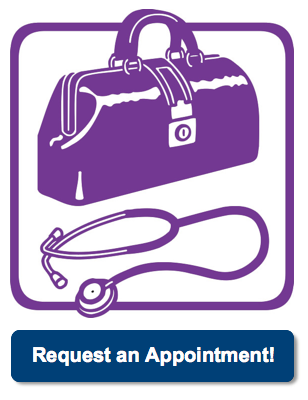
“Health.”
It’s a word that tends to makes men uncomfortable. It’s a topic to be avoided whenever possible. And it’s a subject matter that a lot of men won’t discuss with their spouses, friends or even physicians.
According to a survey conducted by the Cleveland Clinic, men prefer to discuss current events, sports or their jobs rather than wasting any words on anything related to their health. And only three-in-five men visit their doctor for an annual routine checkup.
But all men should.
Making men’s health a priority by talking about it and visiting your doctor can lead to healthier, happier and longer lives.
Here’s why:
Knowledge is power (and longevity)
Maybe men don’t discuss their health because they really don’t know all that much about it.
According to the survey, only 28 percent of men know the correct age to begin being tested for colon or rectal cancer, which the Centers for Disease Control and Prevention says is 50 (most respondents put the age closer to 42).
But knowledge is power, and men who know when to get screened for colorectal cancer have a better chance of preventing it. Screening helps find polyps in the colon or rectum before they become cancerous.
That can add years to your life.
So even if you’re not willing to discuss men’s health, you should at least get knowledgeable about when and where to get your screening done.
Family matters
Men tend to believe that they are invincible–even if their family history suggests otherwise. When it comes to your likelihood of developing certain medical conditions and diseases, family matters.
If you have close relatives who have lived with or passed away from heart disease, diabetes, colorectal cancer or testicular cancer, getting on a proactive screening schedule could make all the difference in the world.
Letting your doctors look for symptoms, abnormal tissue or cancer can help detect it at an early stage, which then gives your doctors a better opportunity to treat it.
The good news is that advances in technology and treatment have made it easier for doctors to find cancers and diseases such as testicular cancer, colorectal cancer and diabetes earlier than ever before.
But in order to find it, you’re going to have to be willing to talk about it and get tested–especially if people in your family have had the conditions.
If you don’t, they will
You want to be in control of your own decisions, right? Well if you don’t start now, you might have to relinquish control later.
That’s the bad news.
The good news is that it is relatively easy to take charge of your health. All you have to do is start making smart decisions about what you eat; exercise more; monitor your blood pressure, weight and cholesterol; and commit to seeing your doctor on a regular basis.
And if you’re like a lot of men, you don’t have a doctor–yet. So now’s the time to find one.
Here’s a three-step guide to help get you started:
- Step one: Connect with your local health system and ask which doctors specialize in men’s health.
- Step two: Find a doctor with whom you’re comfortable and make an appointment.
- Step three: Show up for the appointment.
There’s actually a fourth step: sharing information with your doctor.
You might not want to talk to everyone about your health. But. if you spend about an hour a year talking to your doctor about men’s health issues, you’re more likely to live longer, healthier and happier.
That’s a conversation worth having.
—
Are you looking for a new provider? Connect with us!


